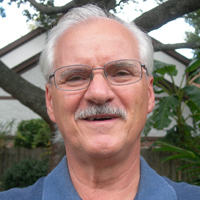Testing Your Mettle: Michael Borque
 One of the oldest traditions in the Department of Earth & Environmental Sciences is its Geology Field Camp. Those who have been a part of this tradition never forget their experiences, the bonds they formed, or what they learned.
One of the oldest traditions in the Department of Earth & Environmental Sciences is its Geology Field Camp. Those who have been a part of this tradition never forget their experiences, the bonds they formed, or what they learned. 
